What are electrolytes (ions)?
Electrolytes produce ions and enable the body to function
Body fluid contains electrolytes, chemicals which, when they dissolve in water, produce charged ions. These ions enable the flow of electrical signals through the body.
Electrolytes play an important role in the body; they regulate the osmotic pressure in cells and help maintain the function of muscle and nerve cells. If electrolyte levels are too low or too high, cell and organ functions will decline, which could lead to life-threatening conditions.
The main electrolytes include sodium, chloride, potassium, calcium and magnesium. These five nutritional elements are minerals, and when minerals dissolve in water they separate into positive and negative ions. For example, when sodium chloride (NaCl) is dissolved in water, it separates into positive sodium ions and negative chloride ions.
Functions of the main electrolytes (ions)
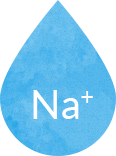
Regulate osmotic pressure and the body's water content, transmit nerve signals, contract muscles, etc.
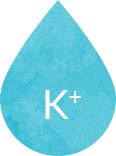
Transmit nerve signals, and contract muscles including the heart, etc.
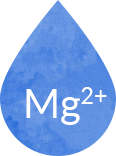
Contract muscles, form bones and teeth, activate enzymes, etc.
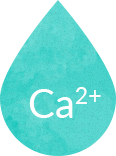
Transmit nerve signals, contract muscles, form bones and teeth, clot blood
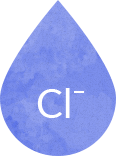
Regulate osmotic pressure and the body's water content, enable the secretion of stomach acid, etc.









